Do you feel we simply don't have enough discussion about how women dress? Do you worry that every conceivable angle of what might be considered too modest or immodest has yet to be thoroughly interrogated, even regulated? Well, you're in luck. In the last few days it has become abundantly clear that we are back in the middle of the seething debates over full-face veiling so roundly explored in 2006, when the then leader of the House of Commons, Jack Straw, declared veils made him "uncomfortable". If possible, it seems the arguments might be even more heated this time.
The issue never really went away, of course. In July, Tory MP Philip Hollobone, who has been pursuing this subject for some years, introduced his Face Coverings (Prohibition) bill – otherwise known as the "ban-the-burqa bill". This stated "a person wearing a garment or other object intended by the wearer as its primary purpose to obscure the face in a public place shall be guilty of an offence". It is worth noting Muslims make up only around 4.8% of the UK population – and it has been estimated that only a tiny percentage of that population veils their face.
Back in August, a trial started at Blackfriars crown court, in which a Muslim woman was accused of intimidating a witness. The accused woman wears a niqab – a full-face veil that leaves only a slit for the eyes – and had intended to wear it in court. This Monday, the judge in her case ruled that she must remove it when giving evidence, but could wear it at other times during the trial.
This ruling came just a few days after the overturning of a ban on the niqab at Birmingham Metropolitan College, a large further education institution. The ban had come to light when a teenager tried to enrol for an A-level course, to be told she could not wear her niqab, because of security concerns. This decision, at a college where a large proportion of students are Asian, prompted a huge social media campaign, including a petition signed by 9,000 people, and plans for a demonstration. The college decided to reverse its decision before that protest took place, a move welcomed by Birmingham Ladywood Labour MP Shabana Mahmood, who said otherwise "a group of women ... would have potentially been excluded from education".
Those individual negotiations and decisions could have been the end of it, but some MPs are clearly keen for the arguments to continue. Liberal Democrat Jeremy Browne, the Home Office minister, has called for a national debate on whether the state should ensure young women and girls are protected from having the veil imposed upon them. And on Monday, in the Daily Telegraph, the Conservative MP Sarah Wollaston said it was time "to stop delegating this to individual institutions as a minor matter of dress code and instead set clear national guidance". She compared the niqab to an "invisibility cloak" and said "women should be clear that the burqa is a symbol not of liberation but of repression and segregation".
What has been missing from many of these arguments is the voice of Muslim women. Salma Yaqoob, formerly a Birmingham city councillor, sounds weary at the idea of another national debate on the issue. "How many national debates have we already had on this?" she says. "It just seems an easy distraction for our politicians. I mean, really? Is this the biggest issue we face in the UK right now? I'm a bit cynical when politicians call for a national debate that has already happened many times over."
Such debates have a detrimental effect on Muslim women in general, she says. "The women who do wear the face veils are a tiny minority within a minority, so the thought that they're any kind of threat to British society as a whole is beyond laughable. But at the same time, [these debates] do, of course, increase the vulnerability of Muslim women as a whole. Time and again, verbal and physical attacks on Muslim women increase when we have these so-called national debates. In emotional and psychological terms, I think it does a huge amount of damage."
Women who wear the veil "are trying to observe what they feel are their religious convictions", she says, "but are made to feel that they are somehow imposing on the whole of society and that they are the biggest problem. And, of course, that isn't conducive to integration, belonging and a positive atmosphere. It doesn't foster cohesion, I think it does the very opposite, and ironically it actually stifles healthy discussion and debate."
Tehmina Kazi, director of British Muslims for Secular Democracy, is similarly unenthusiastic about the national debate idea. "What does need to happen," she says, "is an internal debate within Muslim communities, questioning people who push the rhetoric that the veil is obligatory in Islam – or even those who say it's recommended." These conversations are necessary, she says, but when talk turns, at a national level, to a state ban on full-face veils – a measure that passed into French law in 2010 – "it's completely counter-productive."
If a woman is, in fact, being oppressed into covering up, then enforcing a stance which makes it difficult or impossible for her to move about in public cuts off her chances of finding any support outside the home. As Yaqoob says, "if someone is in a situation where their choice has been taken away, actually the best recourse for women like that is that they be able to integrate more, have more exposure, more [social] connections, so they can be reached and helped. Otherwise, you're forcing them to have less interaction, and isolating them for ever."
Writer and feminist Talat Yaqoob says Muslim women have to be at the forefront of any conversation that takes place. "That can be Muslim women who are against it, it can be Muslim women who are for it, but it has to be those who it actually impacts, because otherwise we're just reinforcing another form of patriarchy ... I come from a Muslim background, and I'm a very liberal woman, I don't wear the veil, but it's not for me to interpret Islam for somebody else. It's as simple as that. When a society dictates what a woman should wear, that's a reinforcement of patriarchy. A woman can wear as little as she likes, or as much as she likes, and it's not for society to assume she is being manipulated."
Salma Yaqoob says she thinks the case-by-case approach that has so far been used, when issues of veiling and security have arisen, has been the right one. "I think the British outlook on these issues has been a good one on the whole, and this constant attempt to pull it back to these black-and-white issues, and move towards a more France-like stance – which to me is a mirror of the Saudi and Iranian stance, where they impose covering on women – is the wrong direction, and unhealthy. I think we've generally got a better balance, and it's sad that now, with the rise of the far right, and an uglier climate arising, these issues are being dragged out again."
Talat agrees that there are always ways of negotiating issues of security. "I understand that safety is paramount, of course, but how safe do women now feel at Birmingham Metropolitan College? The decision might have been revoked, but how safe, how included, does a Muslim woman who wears a veil now feel, or does she feel like an outsider?"
When this debate is raised, one sad outcome, says Salma Yaqoob, "is a lot of Muslims actually resent the Muslim women [who wear the veil] as well, because they think: 'You're causing this grief for us.' So that intolerance is infectious. It's like: 'Come on, we're getting all this negative attention again, can't you lot just stop it.'" She was pleased to see how many people signed the Birmingham Metropolitan petition. "It shows that young people have an attitude: 'We want people to feel that they belong.' I think that shows a strong sense of self, actually. I think there's an insecure sense of self that gets threatened by a tiny minority's dress choice."
It has been very easy for people to call for a ban, she says, "but I think you should stand up for choices that you wouldn't necessarily choose for yourself, or that you even dislike. It's highly patronising and dangerous to impose your views on everyone else ... You get men sermonising away, and then also, in the name of feminism, women telling other women what to do, not aware of the irony of taking on that paternalistic and patronising saviour syndrome. That's what we fought against with patriarchy – men telling us what they think is best for us – and then you have women telling other women what they think is best for them."
She says there is a place for nuanced discussion, and people are obviously fully entitled to their feelings on the issue, "but I think it's very dangerous when you choose to bring in the blunt and brute force of the state to enforce your opinions. That's what I fundamentally reject."
Talat Yaqoob says she is just weary of the endless discussion of what women wear, the way all these arguments play out on women's bodies. "It's exhausting that a woman can be too overdressed, too underdressed," she says. "It's about time it was laid to rest."
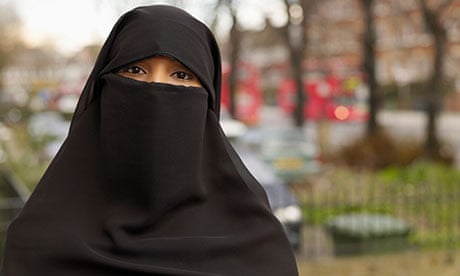
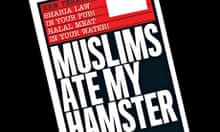


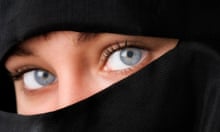
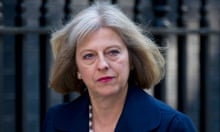

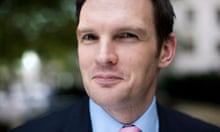



Comments (…)
Sign in or create your Guardian account to join the discussion